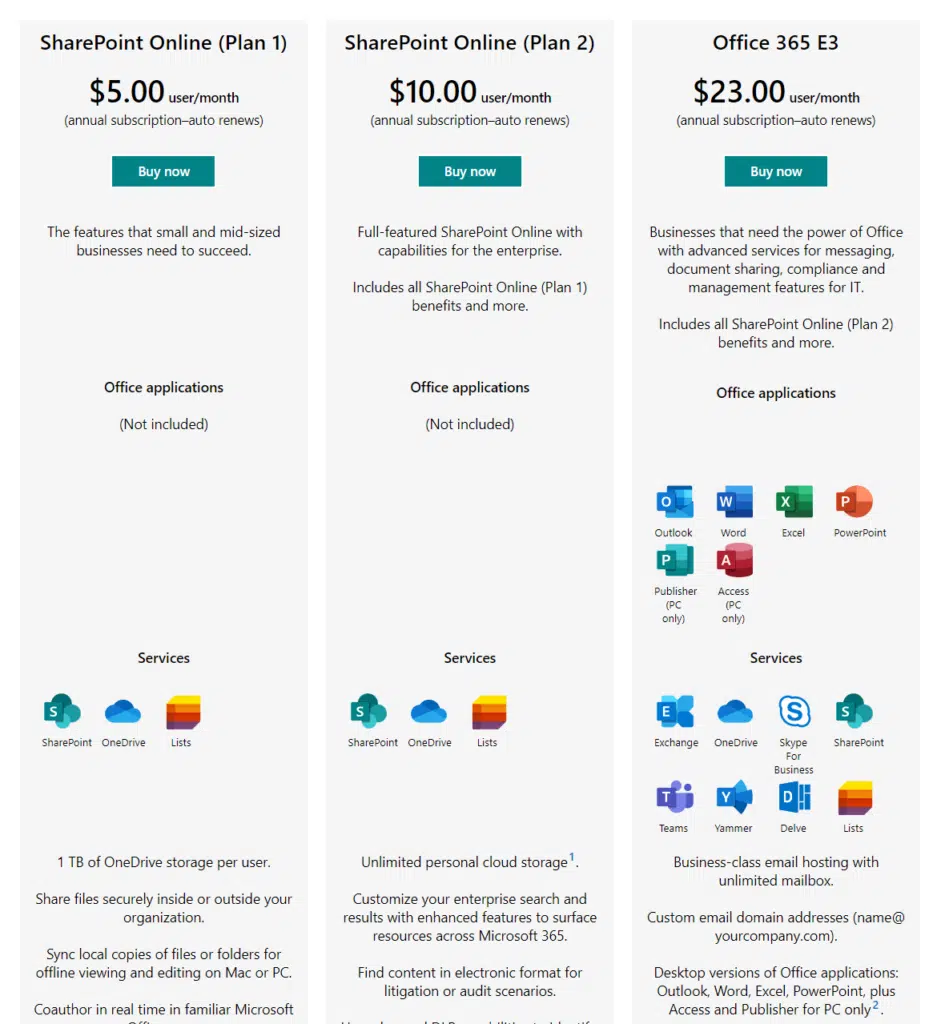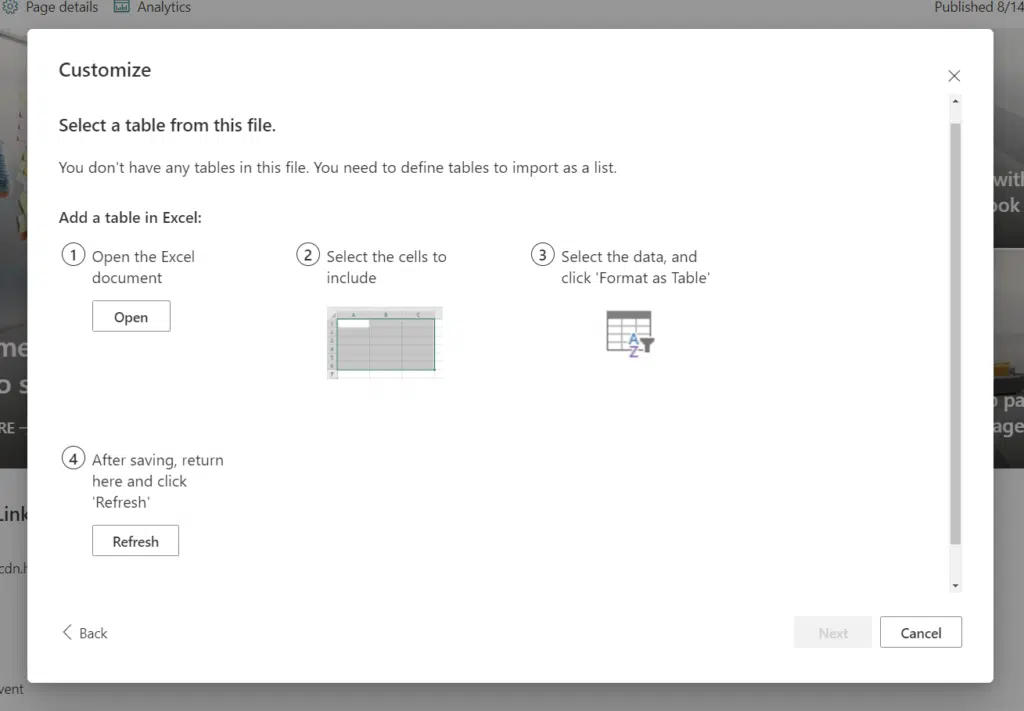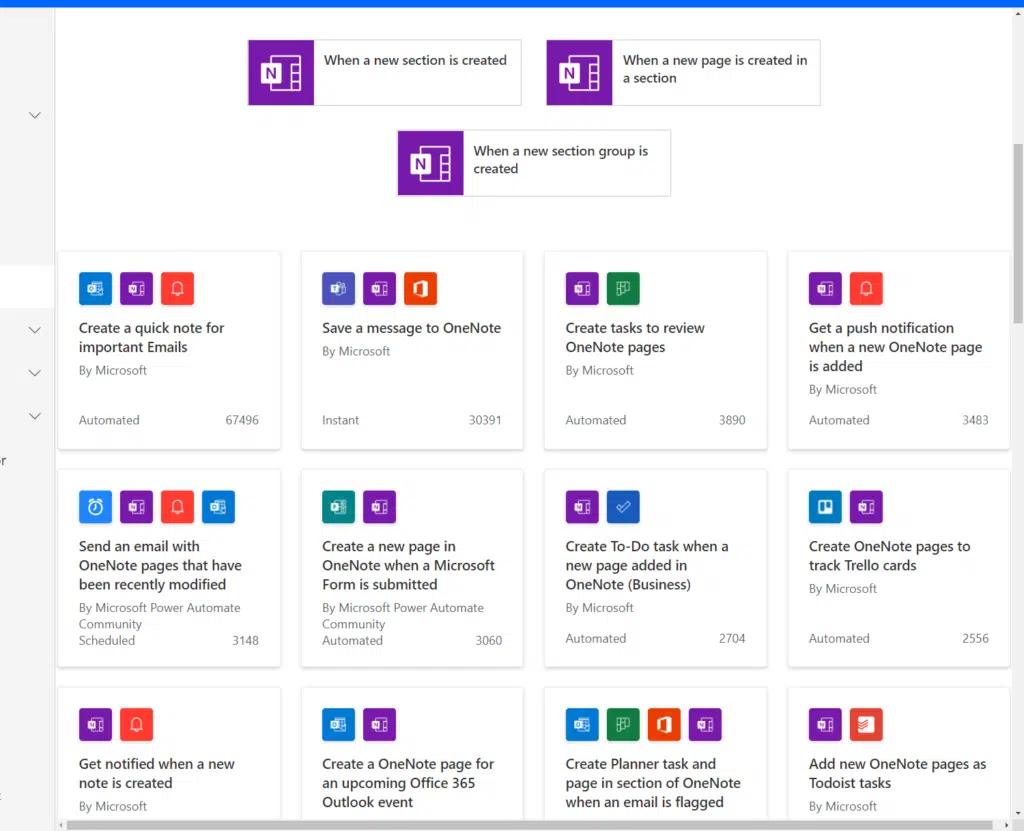Last Updated on September 23, 2023
Thinking of using SharePoint for matters related to financial services and projects?
SharePoint is a powerful tool that can be used for finance and administration. It can help manage finances, control projects, and improve communication.
In this guide, we will go over how to use SharePoint for finance and administration and whether or not it’s the right solution for this industry.
Let’s get started.
Table of Contents:
First, SharePoint is a web-based collaboration platform for creating intranets and allows users to share and manage documents, data, and information.
You can buy a license for it included in a Microsoft 365 purchase — although you can still buy it as a standalone product.

Note: SharePoint and Microsoft 365 can get confusing sometimes. Check out this article where I explained further the difference between the two.
Anyway, SharePoint provides a central location for all your financial and administrative data and documents.
You can basically use it to store, track, and share anything from Excel spreadsheets to invoices and contracts.
In terms of the benefits of using SharePoint for finance and administration, here are a few of them that I can give on top of my head:
- Secure platform. Your data is stored in a central location and is backed up regularly.
- Easy to use. Users can quickly and easily find the information they need.
- Improves communication. Users can share documents and data with colleagues, clients, and partners.
- Flexible. It can be customized to fit the specific needs of your organization.
Sign up for exclusive updates, tips, and strategies
SharePoint can be used to store all your financial data in one place. This includes income, expenses, invoices, contracts, and more.
You can also use SharePoint to design a homepage that works like a dashboard. This way, you can track your progress and make better decisions for your organization.
Note: If you want a more sophisticated dashboard, you can use Microsoft Power BI for that and integrate it with your site. Check out this guide for more details.
If you have been using Microsoft apps in the past for budgeting and forecasting, you will be happy to know that you can effortlessly import your Excel files to SharePoint.

There are two ways to achieve that:
- You can import an Excel file as a list — something that works like a container for data in SharePoint (more of a complex database than a spreadsheet).
- You can import an Excel file as an Excel file. Through this method, you can open and edit the file from SharePoint and make updates to it.
Note: If you’re new to the concept of a list, you may have a hard time understanding what I mean. For starters, check out this article for more information.
Reporting is an important aspect of finance and administration. SharePoint can help you with that as well.
You can use SharePoint to generate reports based on the data you have stored in it.
For example, you can create a report that shows your organization’s income and expenses for a certain period of time.
SharePoint also allows you to export your reports to Excel (and then to other formats from Excel). This way, you can easily share them with your colleagues, clients, and partners.

To generate a report in SharePoint:
- You need to create a list or library first that contains the data you want to use.
- Once you have that, you can then create a page and add a web part to it.
There are different types of web parts you can use. But for reports, you will want to use the Excel Web Access web part.
After adding the web part, you can then configure it to display the data from your list or library.
Note: Adding an Excel Web Access needs a bit more expertise here since you can’t do this with out-of-the-box features only.
SharePoint can also be used to manage accounts payable and receivable.
You can use SharePoint to store invoices, contracts, and other documents related to your organization’s finances.
You can also use SharePoint to create a workflow for your accounts payable and receivable processes.

For example:
- You can create a workflow that starts when an invoice is received.
- Then, the workflow can automatically send the invoice to the correct person for approval.
After the invoice is approved, the workflow can then send it to the accounts payable department for payment.
Related: Microsoft Flow Approval: Multiple Approvers (2023 Guide)
This is made possible through an app called Power Automate, which can be used in any number of ways:
- Claims processing
- Invoice management
- Payroll management
- Custom onboarding
- Data collection and checks
- Updating customer information
- Approval workflow
Note: Power Automate used to be called Microsoft Flow. If you’re interested, you can read more about Power Automate in this article.
Yes, SharePoint can be used for finance and administration.
It offers a variety of features that can help with tasks such as reporting, budgeting, and forecasting, accounts payable and receivable, and more.
If you’re not familiar with SharePoint or need help getting started, you may of course have a hard time figuring out all the features.
On the other hand, you can always ask and leave your thoughts (and questions) in the comment section below.
For more inquiries, drop a message through my contact form, and let’s talk about how I can help you in using SharePoint.

